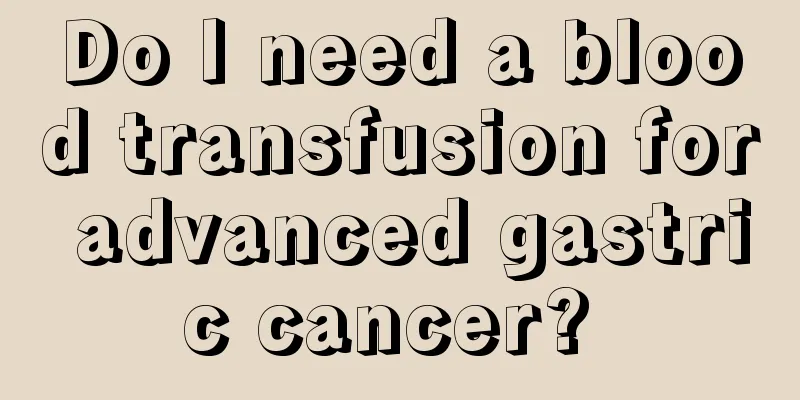Top 10 bad habits that cause sudden death

|
First: Cycling in the city Researchers found that whether driving, cycling or walking to work, passing through densely trafficked roads will increase the risk of heart attack, mainly due to air pollution. Among them, those who ride bicycles to work are the most dangerous, because they inhale the most exhaust gas and are the most "polluted". At the same time, they have to expend a certain amount of physical energy pedaling the bicycle, which can easily cause insufficient blood supply. Both of these aspects are important causes of heart attacks. Experts analyze that traffic congestion can easily make people nervous and anxious, causing high blood pressure. Therefore, it is not recommended for people at high cardiovascular risk to ride a bicycle to get off work during peak traffic hours. Although cycling is a good sport, riding on heavily polluted roads does more harm than good. It is best for the elderly, especially those with chronic bronchitis, to avoid traveling during peak traffic hours. Second: Straining to defecate Sudden actions such as defecating and moving buckets of water require people to exert force suddenly from a static state, which causes blood pressure to rise rapidly in an instant and the pressure on the heart to increase dramatically. In addition, when blood pressure is unstable, the activity of vascular plaques will increase and they will easily fall off. The elderly, people who are accustomed to sitting for long periods of time, people with high blood pressure, and those with a history of heart disease should avoid sudden exertion. If you must do it, do warm-up exercises in advance. Eat more vegetables and avoid dry stools. Use supplementary medicines such as enema when necessary. Third: Drinking a lot of alcohol or coffee Many studies at home and abroad have confirmed that moderate amounts of alcohol and coffee can produce antioxidants and protect the heart. But drinking too much can do more harm than good. Because alcohol and coffee can increase heart rate and blood pressure, triggering a heart attack. If a person is a long-term alcoholic, it will damage the myocardium and eventually lead to heart failure. Therefore, whether you are drinking coffee or alcohol, you should do it in moderation. A normal adult male should not drink more than 750 ml of beer per day, which is equivalent to 250 ml of wine, 75 ml of low-alcohol liquor and 50 ml of high-alcohol liquor respectively; an adult woman should not drink more than 450 ml of beer per day, which is equivalent to 150 ml of wine and 50 ml of low-alcohol liquor respectively. People with poor heart condition should try to drink less alcohol and coffee to avoid causing heart discomfort. In addition, alcoholics who are able to quit drinking often experience significant improvements in heart function. Fourth place: depression Bad mood is the enemy of the heart, and depression is the first to be affected. Because depression is usually accompanied by anxiety, the quality of sleep at night will be very poor, and the heart cannot get rest, which will cause blood pressure and heart rate to increase, which is very bad for heart health. It is recommended to communicate more with family and friends when encountering difficulties, avoid anger, extreme sadness or joy, and control your emotions. No. 5: Overeating After people eat too much, the gastrointestinal tract needs a large amount of blood to digest food, while the blood flowing into the cardiovascular and cerebrovascular systems is greatly reduced. For people whose blood vessels already have insufficient blood supply, a full meal can easily induce myocardial infarction or cerebral infarction. Therefore, do not indulge your appetite easily, because a full meal may take a life. People who eat too much for a long time are prone to obesity. If they do not exercise enough, fat will accumulate and lipid plaques will easily form in the blood vessels. If this occurs in the cardiovascular and cerebrovascular systems, it will cause coronary heart disease and cerebral stroke. It is very important to develop good eating habits. It is best to eat until you are 70% to 80% full or eat small meals frequently, and the nutrition should be balanced. No. 6: Excessive sexual indulgence A moderate and enjoyable sex life can make people feel happy, but unbridled sexual desire can cause heart failure. When you are overly excited, your heart and blood vessels will suddenly spasm, causing myocardial ischemia and triggering heart disease. For people who have already suffered from heart disease, they can have sex during the acute phase and after the acute recovery phase, but they should avoid excessive excitement. People with coronary heart disease are best not to use Viagra. 7. Drug use People who use cocaine have a 23 times higher risk of heart disease. In addition to the above seven points, there are some bad habits that can subtly damage our heart. 8. Smoking or passive smoking Although few people suddenly die of cardiac arrest from smoking a cigarette, the damage caused by smoking to the heart is long-term and stubborn. Smokers have three times the risk of myocardial infarction. Start quitting smoking now. Within 8 hours, the carbon monoxide in the blood will be reduced to normal levels. Within 24 hours, the chance of heart attack will be reduced. One year after quitting smoking, the risk of heart disease (such as myocardial infarction) will be reduced by half. After 15 years of quitting smoking, the risks will be the same as those of non-smokers. 9. Eating too salty or sweet food Eating too much salt can not only increase blood pressure, but also increase plasma cholesterol and promote atherosclerosis. A study shows that children whose diet contains a lot of sweet drinks or who have a sweet tooth will have a significantly increased risk of heart disease in adulthood. 10. Sitting for a long time More and more "homebodies" and office "sedentary people" need to prevent themselves from getting sick or even dying from sitting while enjoying the comfort of sitting. Because sitting for a long time will cause changes in the body's metabolism, affect fat metabolism, weaken enzyme activity, increase the fat and triglyceride levels in the blood, increase blood viscosity, slow blood flow, easily form blood clots, and increase the risk of heart disease. |
<<: How many of the top ten short-lived habits do you have?
Recommend
How to reuse diapers when they become too small
Many parents choose to use diapers for their youn...
Is the alpha-fetoprotein level in liver cancer always high? Not necessarily high
Does liver cancer always have high alpha-fetoprot...
The flesh next to the end teeth hurts so much
Most people's swollen and painful teeth occur...
What to do if you have ankle joint pain?
Friends, have you ever sprained your ankle? This ...
The dangers of bathing in an inflatable bathtub
Although the inflatable bathtub is very space-sav...
How long is the human small intestine?
In many people's impressions, the small intes...
Will long-term poor sleep affect blood sugar?
Poor sleep has a great impact on our health. Long...
Men can prevent prostate cancer in their daily life
In our lives, prostate cancer is a relatively com...
What causes a cold scalp? Is it serious?
There are many reasons for a cold scalp, such as ...
Donating blood can delay aging
Donating blood is originally a public welfare thi...
What are the effects of mugwort pillow
I wonder if you have ever heard of using mugwort ...
Tips to improve memory
Memory is extremely important to human beings, an...
6 major indications for total laryngectomy
Total laryngectomy is a safe and reliable method ...
Prognostic analysis of stage I breast cancer
Breast cancer is a gynecological tumor with a hig...
Understanding the main causes of gastric tumors
Gastric tumor is one of the common tumor diseases...









